On the night of 1st October 2012, the shocking maritime disaster took place when 2 passenger vessels the Sea Smooth (a public ferry) and the Lamma IV (a private boat) collided near Lamma Island. After the collision, the Sea Smooth remained afloat and nobody died. Horribly, Lamma IV sank within 118 seconds, killing 39 passengers including 8 young children. 97 other passengers on Lamma IV were injured, some seriously. The outpour of sorrow across the city was immediate and universal. Grave concerns about maritime safety in Hong Kong were raised. Both the victims’ families and the community as a whole expected, and rightly so, that thorough investigations were to be conducted to find out what had happened leading to many deaths; that those who were responsible should be held accountable; and that most importantly, appropriate measures should be taken to prevent the occurrence of similar incidents in the future.
One of such investigations, as one might reasonably expect from an appalling disaster of this scale, was a death inquest (死因研訊) under the Coroners Ordinance (死因裁判官條例) (‘the Ordinance’). In fact, this was exactly the recommendation in the death investigation reports prepared by the police and submitted to the Coroner in 2020. However, by a decision dated 19th November 2020, the Coroner David Ko decided that no death inquest was necessary. Having regard to all the materials before him, he simply concluded, without holding an inquest, that the victims were legally considered as ‘unlawfully killed’.
After the Coroner decided not to hold an inquest, 10 family members of the victims were very unhappy and wrote to the former Secretary for Justice Ms Teresa Cheng inviting her to invoke her power under the Ordinance requiring the Coroner to hold an inquest. By a letter dated 9th March 2021, the Secretary replied, declining to do so because she concurred with the Coroner’s view.
Some family members were very upset by such results and they pursued justice further by applying to the Court of First Instance under section 20(1)(a) of the Ordinance for an order that a death inquest was to be held.
By a judgement handed down on 24th November 2022, Coleman J refused the application because he was not persuaded that the ‘public interest’ (公眾利益) in this case would require a death inquest to be held.
Extremely disappointed, some family members turned to the Court of Appeal (上訴庭) to try to change the decision of the lower court.
Realizing that the court case involved a lot of fact-sensitive questions, the Court of Appeal examined the following facts and issues in great detail:
- the 2 vessels;
- the collision in 2012;
- the COI (Commission of Inquiry) Report dated 19th April 2013 (Swiftly after the disaster, the Chief Executive in Council appointed a Commission of Inquiry to inquire into the facts and circumstances leading to and surrounding the collision of the 2 vessels);
- the cause of the collision;
- circumstances in which and as to why the Lamma IV sank rapidly;
- why so many (39 persons) died? and
- maritime safety and the system enforced by Marine Department (‘M Dept’).
The COI Report revealed, as a shock to the public, that there were possible mal-administration and dereliction of duty by some M Dept officers in connection with the safety issues of the Lamma IV. The Transport and Housing Bureau (‘TH Bureau’) followed up and conducted an internal investigation which was concluded in March 2014.
Since it was the government policy not to disclose report on internal investigation to the public, only a summary of the TH Bureau’s report was published on 28 April 2014. According to the summary. 17 M Dept officers, serving and retired, were prima facie found to have misconducted themselves. Disciplinary actions were subsequently taken against 13 serving officers but the details of such actions were never made public, despite repeated demands by the victims’ families.
Criminal proceedings also ensued after the COI Report. The Two coxswains of the Sea Smooth and the Lamma IV were prosecuted. The former was convicted of 39 counts of manslaughter and one count of endangering the safety of others at sea; the latter, one count of endangering the safety of others at sea. On 16 February 2015, they were sentenced to 8 years’ imprisonment and 9 months’ imprisonment respectively.
In addition to one M Dept officer Mr So Ping-chi, Mr Wong Kam Ching, as a M Dept officer, was in 2016 prosecuted and convicted of perjury for giving false evidence before the COI that he remembered counting enough children life jackets on the Lamma IV when he inspected the vessel on 8 May 2012 and was sentenced to 15 months’ imprisonment.
The convictions of the 2 coxswains were however related to the ways that 2 vessels were being controlled at the time of the accident. The convictions of the 2 M Dept officers were related only to the life jackets on the Lamma IV. The Court of Appeal thus examined some more fundamental un-resolved issues surrounding the causes of disaster. For example, due to the failure of the various parties involved in the construction of Lamma IV, the bulkhead was not made watertight. Only the immediate cause of collision was dealt with but how about the ‘structural’ causes rooted in the design and equipment on board of the vessel which could be traced back to as far as 1994 when the vessel was designed and constructed. Why were these problems, during the past many years, not discovered by the Marine Department when they inspected the vessel for the purpose of licensing? Were there any systemic deficiencies on the part of the Government that one could give recommendations as to the future improvements? This is why the deceased’s families had been thinking that some had not been brought to justice.
Upon the conclusion of all criminal proceedings, the Police finalized the ‘Death Investigation Reports’ after interviewing 91 witnesses and the reports were submitted to the Coroner in October 2020. The Police discovered some other problems such as an additional error in relation to the processing of designing, constructing and surveying the Lamma IV revealed by expert evidence and this aspect was not covered by the COI Report in 2013.
Very importantly, the Police’s Death Investigation Reports concluded that the trial of the 2 coxswains only dealt with the circumstances surrounding the collision. Though the COI shed some light upon the physical condition of the Lamma IV and how it was designed, built and approved for sailing, the in-depth investigation into the individual parties and M Dept was completed only after COI report. As a result, the regulatory body namely the Marine Department and the employers of the Lamma VI vessel crew relating to the incident have never carefully examined by any public tribunal. The Police thus recommended that Death Inquest should be held to ascertain the cause of the death of the deceased but such a recommendation was turned down by the Coroner.
In considering if a Death Inquest, because of the above analysis, should be held based on the principle of ‘public interest’. The meaning of ‘public interest’ was found being not defined in the Coroners Ordinance. The Court of Appeal agreed with the Law Reform Commission’s Report in 1988 that the primary role of a coroner in Hong Kong is to investigate the causes of the circumstances surrounding any death which:
- is of uncertain cause;
- is accidental;
- is suspicious;
- requires investigation in the public interest with a view to:-enabling interested persons to ascertain the true facts surrounding a death;
- making recommendations to prevent similar deaths;
- clearing innocent persons of unjustified suspicion;
- enabling early recognition of new hazards to life;
- drawing official attention to preventable diseases causing death and to the misuse of drugs;
- deterring persons who might otherwise be tempted to exercise insufficient care; and
- uncovering cases of crime that would otherwise go undetected.
The above factors were what the ‘public interest’ in this case might be pertinent to.
The Court summarized 6 matters of concern in this scary accident relating to the above factors: especially those connected with the building of Lamma IV by the builder Cheoy Lee (財利) and inspection by the Marine Department and other professionals. There were also systemic questions for a court of public nature to rightly investigate so as to expose any found systemic deficiency in the Department concerning approval, certification and survey for passenger vessels not yet discovered by the COI.
The Court found a very strong case for the public examination of those responsible M Dept officers, who might or might not be the 17 officers identified in the TH Bureau internal investigation. Further, given the coroner hearing’s public nature and hence transparency, which differed from the confidential TH Bureau’s internal investigation, it might help enhance a great deal the accountability of and public confidence in the governance of the Marine Department.
For the reasons and other relevant points articulated in the judgement, the Court concluded that it is plainly in the ‘public interest’ to hold an inquest into the deaths of 39 victims of the Lamma IV, despite the lapse of 11 years.
A family member of the victims was interviewed outside the Court and she said, “This is the first time that I smiled in the public during the 11 years of torture!”
There is a famous saying that “justice must not only be done, but must also be seen to be done.” Judges in Hong Kong are independent and they are brave enough to make rulings according to the rule of law and judicial discretion, even if those decisions may not be liked by the government or powerful interests. Respect for the rule of law is about the faith of the public in the capacity of the law to dispense justice fairness and equality for all. Justice is not simply passed by legislations or legal principles; but they are passed in reality by the good judges in Hong Kong who can be neutral, fair and wise. The 11-year legal story about the alarming sea disaster is one of the great manifestations of justice and that Hong Kong is still a city outstanding for its Rule of Law (法治精神)! Bureaucracy is giving less than you need, but the principle of ‘public interest’ is giving us the due right that we deserve.
This article can also be found at the following sites:






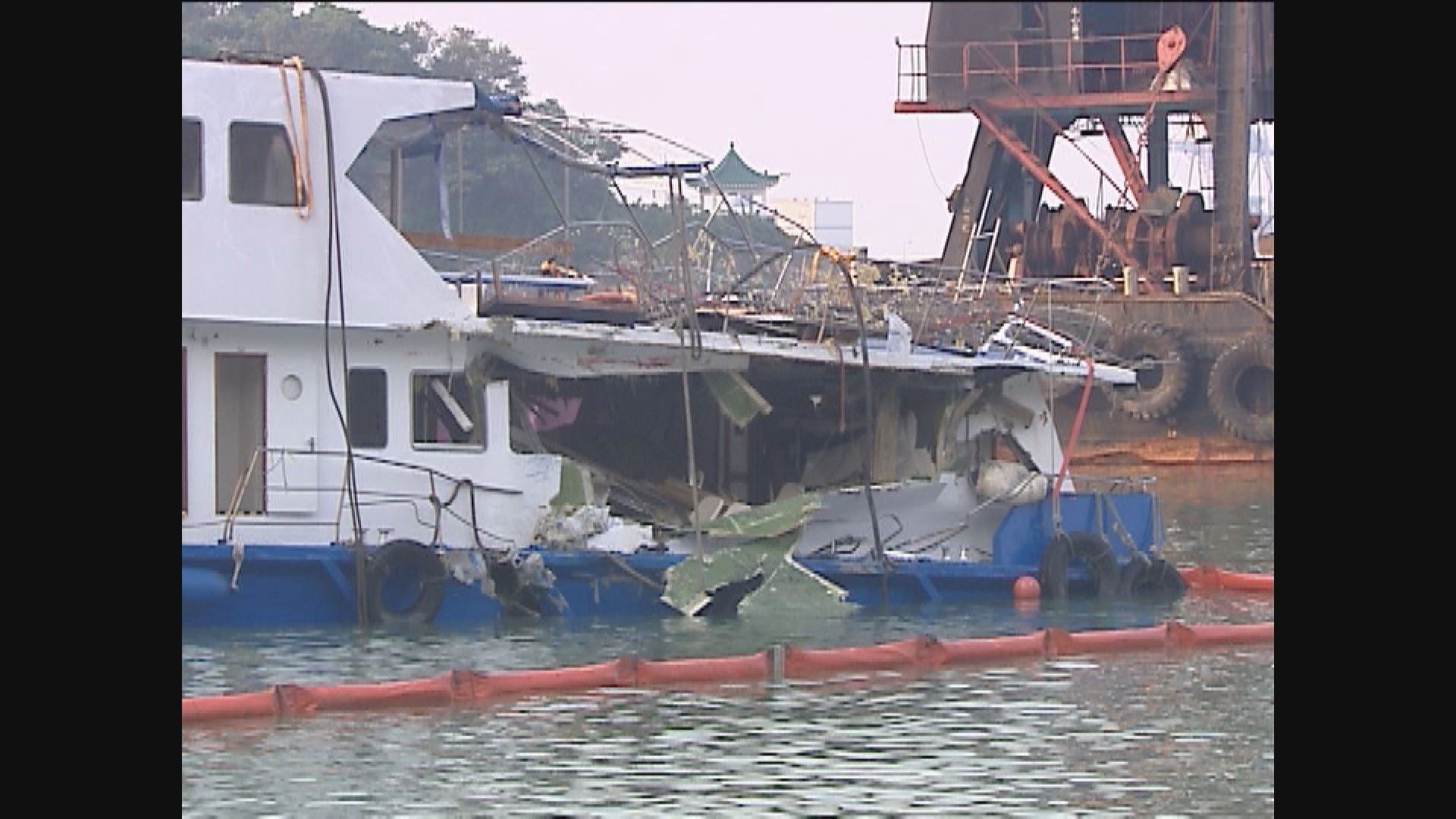
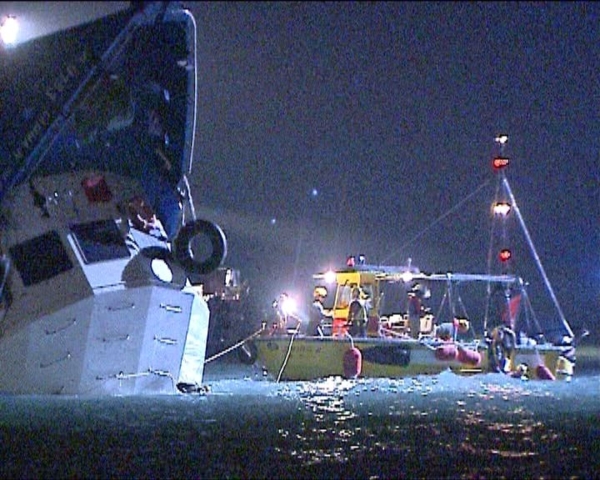
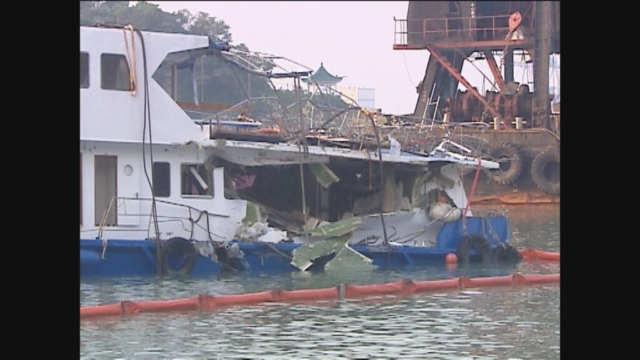
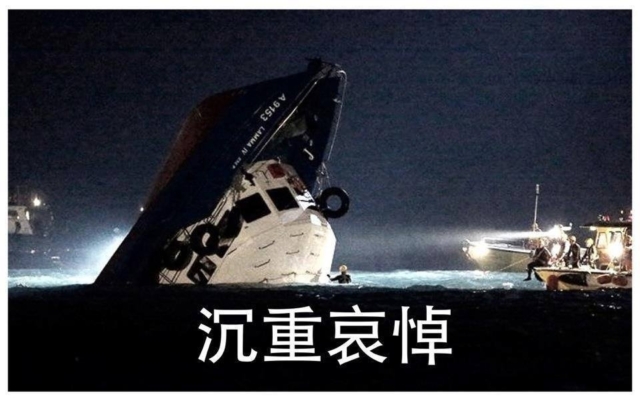
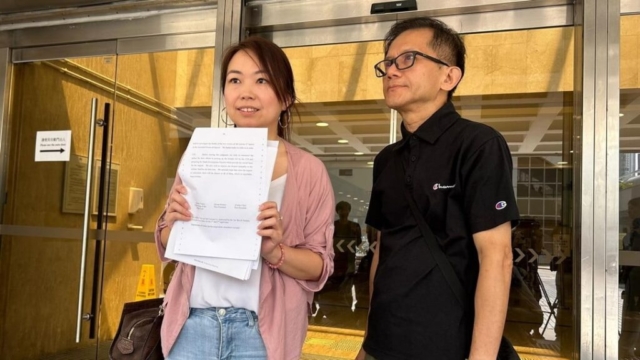
-1024x684-640x480.jpg)
-1024x683-640x480.jpg)
-1024x714-640x480.jpg)
-1024x684-640x480.jpg)